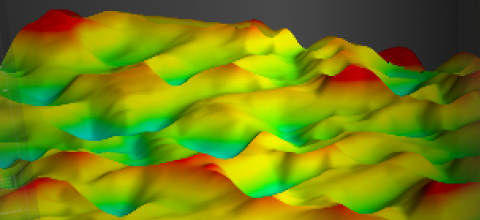EXALAT is the EPSRC-funded research project on Lattice Field Theory at the Exascale Frontier.
Lattice Field Theory (LFT) provides the tools to study the dynamics of quantum systems in strongly coupled regimes that are not accessible to the usual perturbative expansions. Applications span a wide range of topics:
- Quantum Chromodynamics (QCD), the theory describing the strong nuclear force within the Standard Model (SM) of particle physics.
- theories beyond the Standard Model
- low-dimensional strongly coupled fermionic models
- study of new cosmological paradigms.
The advent of pre-Exascale and Exascale systems will allow us to expand the science programme in LFT, increasing the scientific impact of the UK programme. EXALAT will
- develop a roadmap for a broad community to exploit exascale facilities by the mid-2020s
- provide benchmarks and identify bottlenecks
- develop novel algorithms to attack signal-to-noise issues, multigrid inverters, instabilities in current algorithms and new directions based on artificial intelligence.
EXALAT is lead by:
- Prof. Luigi Del Debbio (University of Edinburgh, Lead-PI)
- Prof. Vassil Alexandrov (STFC Hartree)
- Dr. Andreas Jüttner (University of Southampton)
- Prof. Biagio Lucini (Swansea University)
- Dr. Antonio Rago (University of Plymouth)

